36 Arguments for the Existence of God - [27]
“The central metaphor in ‘Dover Beach’ is the ocean, and the poem itself is like a bridge passing from lush Romanticism to the brave new world of Modernism, where we aren’t shaded from the hard truths of the natural world, and we have to create what meaning we can get from our relations with one another. That’s all we have, in the end. The sublime has abandoned us, and what sublimity we have remaining we have to make for ourselves, subliminally, from the material of our own self.”
Cass had been surprised by the surge of his own insights. That thing about the sublime, the subliminal, and the self-what this whole seminar was about!-had just hit him like a wallop between the eyes while he was talking.
Professor Klapper’s eyes, which were shaped to the contours of sadness, slanting downward like two arrows taking aim at his lower face, had kept themselves unseen, obscured in the iconic thinker’s pose.
There was silence in the classroom, the fraught silence of billions of agitated neurons soundlessly firing, until, at last, Jonas Elijah Klapper lifted his brow from off of his palm and revealed his face, which was contorted in silent-film fashion with the unmistakable mien of unmitigated aghastment and dismay. His lips were twisted, and his nose, a fleshy mound piled high on his face, was crinkled up as if some gaggingly offensive smell had entered the room.
“No, no, no! That’s not what I was talking about at all!” He held up his two hands in an apotropaic gesture. “Not at all, not at all! Spare me, spare us all, such bromides. And above all keep the bad fictions of Charles Darwin out of my classroom. Darwin’s fingerprints are all over this poem, indeed! I will not have such infantile slobberings upon the sacred body of literature”-he pronounced it, as always, “lit-er-a-toor”-“not even upon a poem of Matthew Arnold’s. And since, Mr. Seltzer, you are a committed Darwinist”-the word came pushed out of his lips as if by peristalsis- “let me inform you that, though Arnold may have published ‘Dover Beach’ in 1867, he had actually written it sometime between 1849 and 1852. The Origin of Species was published in 1859. If you want to point to such precursors and influences, then do at least check the dates. You’d have been better off citing the Vestiges of the Natural History of Creation, published anonymously in 1844, by Robert Chambers, a radical journalist. But do, please, have a care for my suffering sensibilities! Now it is Darwinism with which I must contend.” He turned his head away so that his mournful countenance fell upon the non-Darwinians in the room. “As I have oft warned those of you who have any proclivity to receive my instruction, most of what passes for science is merest scientism.”
The moments while Klapper spoke had at first borne the true marker of a nightmare: too perfect a realization of one’s worst fears not to be a dream delivered sizzling from hell. Horrible disbelief was followed by far more horrible belief, and for the remaining hours of this first meeting of “The Sublime, the Subliminal, and the Self,” as Jonas Elijah Klapper’s voice continued without interruption, not even Gideon Raven hazarding a comment, Cass sat unmoving, unhearing, almost unexisting, deliquescing into a numbness that approached the state of being nothing at all.
The two-and-a-half-hour seminar was drawing to a close. Professor Klapper was speaking of next week’s assignment, Aristotle’s Poetics.
“… answering the challenge that his discarded teacher, Plato, issued after he had symbolically, if not diabolically, banished the poet from his city of reason. As Plato wrote in his Republic”-Klapper was staring off into the inscribed distance-“‘Let us, then, conclude our return to the topic of poetry and affirm that we really had good grounds then for dismissing her from our city,… for reason constrained us. And let us further say to her, lest she condemn us for harshness and rusticity, that there is from of old a quarrel between philosophy and poetry.’ I skip over a few lines here, not from lack of recall but lack of relevance, and proceed: ‘But nevertheless let it be declared that, if the mimetic and dulcet poetry can show any reason for her existence in a well-governed state, we would gladly admit her, since we ourselves are very conscious of her spell.’
“Now, my creatures of sweetness and light”-this was one of his endearments for his students-“it is in the context of this gauntlet flung down by Plato that Aristotle’s Poetics must be read. Aristotle is answering the older philosopher’s challenge by pragmatically-I use the word in the sense of William James, which is my own as well-connecting it to psychopoiesis.”
Cass recognized the word from his summer studies of the twenty-eight tomes. Psychopoiesis. Soul-making. The coinage was, so far as Cass knew, Klapper’s own, struck out of the ancient Greek.
“Poetry is in the business of psychopoiesis at least as much as philosophy is. And if I might be permitted, humbly, to stand between Plato and Aristotle and offer my emendation, you will hear me fervently whispering ‘oh more, far more!’
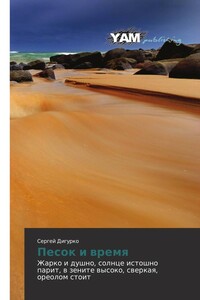
В пустыне ветер своим дыханием создает барханы и дюны из песка, которые за год продвигаются на несколько метров. Остановить их может только дождь. Там, где его влага орошает поверхность, начинает пробиваться на свет растительность, замедляя губительное продвижение песка. Человека по жизни ведет судьба, вера и Любовь, толкая его, то сильно, то бережно, в спину, в плечи, в лицо… Остановить этот извилистый путь под силу только времени… Все события в истории повторяются, и у каждой цивилизации есть свой круг жизни, у которого есть свое начало и свой конец.
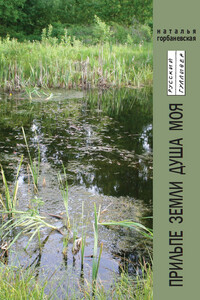
С тех пор, как автор стихов вышел на демонстрацию против вторжения советских войск в Чехословакию, противопоставив свою совесть титанической громаде тоталитарной системы, утверждая ценности, большие, чем собственная жизнь, ее поэзия приобрела особый статус. Каждая строка поэта обеспечена «золотым запасом» неповторимой судьбы. В своей новой книге, объединившей лучшее из написанного в период с 1956 по 2010-й гг., Наталья Горбаневская, лауреат «Русской Премии» по итогам 2010 года, демонстрирует блестящие образцы русской духовной лирики, ориентированной на два течения времени – земное, повседневное, и большое – небесное, движущееся по вечным законам правды и любви и переходящее в Вечность.
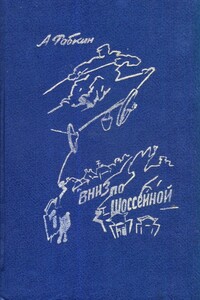
Абрам Рабкин. Вниз по Шоссейной. Нева, 1997, № 8На страницах повести «Вниз по Шоссейной» (сегодня это улица Бахарова) А. Рабкин воскресил ушедший в небытие мир довоенного Бобруйска. Он приглашает вернутся «туда, на Шоссейную, где старая липа, и сад, и двери открываются с легким надтреснутым звоном, похожим на удар старинных часов. Туда, где лопухи и лиловые вспышки колючек, и Годкин шьёт модные дамские пальто, а его красавицы дочери собираются на танцы. Чудесная улица, эта Шоссейная, и душа моя, измученная нахлынувшей болью, вновь и вновь припадает к ней.
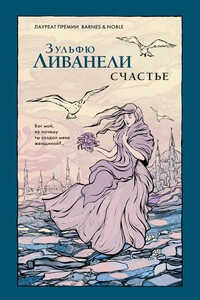
Восточная Анатолия. Место, где свято чтут традиции предков. Здесь произошло страшное – над Мерьем было совершено насилие. И что еще ужаснее – по местным законам чести девушка должна совершить самоубийство, чтобы смыть позор с семьи. Ей всего пятнадцать лет, и она хочет жить. «Бог рождает женщинами только тех, кого хочет покарать», – думает Мерьем. Ее дядя поручает своему сыну Джемалю отвезти Мерьем подальше от дома, в Стамбул, и там убить. В этой истории каждый герой столкнется с мучительным выбором: следовать традициям или здравому смыслу, покориться судьбе или до конца бороться за свое счастье.

События, описанные в этой книге, произошли на той странной неделе, которую Мэй, жительница небольшого ирландского города, никогда не забудет. Мэй отлично управляется с садовыми растениями, но чувствует себя потерянной, когда ей нужно общаться с новыми людьми. Череда случайностей приводит к тому, что она должна навести порядок в саду, принадлежащем мужчине, которого она никогда не видела, но, изучив инструменты на его участке, уверилась, что он талантливый резчик по дереву. Одновременно она ловит себя на том, что глупо и безоглядно влюбилась в местного почтальона, чьего имени даже не знает, а в городе начинают происходить происшествия, по которым впору снимать детективный сериал.
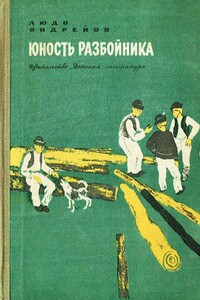
«Юность разбойника», повесть словацкого писателя Людо Ондрейова, — одно из классических произведений чехословацкой литературы. Повесть, вышедшая около 30 лет назад, до сих пор пользуется неизменной любовью и переведена на многие языки. Маленький герой повести Ергуш Лапин — сын «разбойника», словацкого крестьянина, скрывавшегося в горах и боровшегося против произвола и несправедливости. Чуткий, отзывчивый, очень правдивый мальчик, Ергуш, так же как и его отец, болезненно реагирует на всяческую несправедливость.У Ергуша Лапина впечатлительная поэтическая душа.